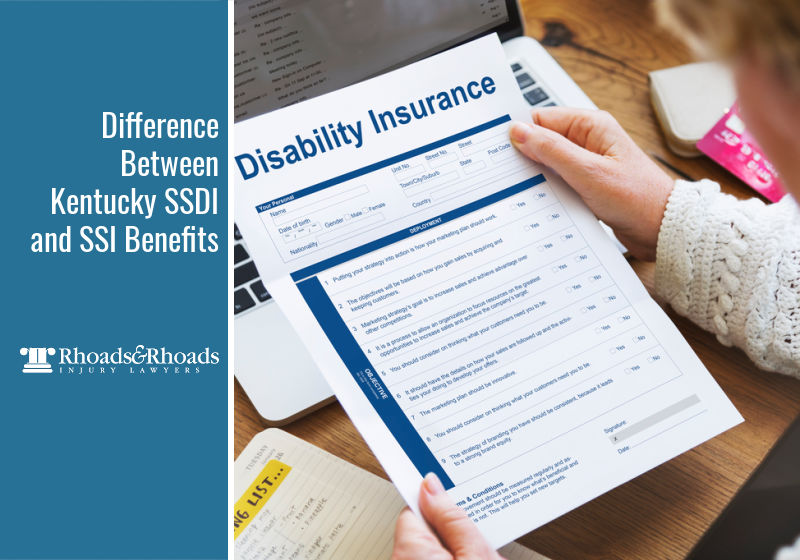
There are two different types of disability benefits available that the Social Security Administration (SSA) offers. These include Supplemental Security Income (SSI) and Social Security Disability Insurance (SSDI). Both SSI and SSDI options assist people by providing supplementary income when they can’t work, but SSI and SSDI offer different advantages and eligibility requirements. You need to be aware of the major differences between SSI and SSDI so that you know which one you qualify for and which offers the best benefits for your personal situation.
What is Social Security Disability Insurance (SSDI)?
Social Security Disability Insurance is a government program funded by payroll taxes that offers disability benefits for those under the age of 65 who cannot work because of a medical issue. The Social Security Administration determines who is eligible for this insurance, and a major eligibility qualification involves total disability. Total disability means that you’re unable to work for over a year or you suffer from a debilitating condition that’s likely terminal.
Additional eligibility requirements include qualifying employment, meaning that before you suffered from your disabling condition, you need to have earned work credits and an income from a qualifying employer. If individuals applying for SSDI do not have eligible work experience, they can still potentially receive benefits through a spouse or parent that has built up work credits and income from qualified employment. Once you reach the age of 65, your SSDI converts to conventional Social Security retirement benefits.
SSDI claims typically take five months to process, but there are cases in which a serious condition may be processed faster through Social Security Administration Compassionate Allowance. If you’re rejected during the process, you’re allowed to make an appeal before an administrative law judge.
What is Supplemental Security Income (SSI)?
Like SSDI, SSI is offered by the Social Security Administration, but it’s funded by general taxes rather than payroll taxes. Supplemental Security Income offers money to both children and adults who suffer from debilitating medical conditions that make it impossible for them to afford their expenses. In addition to those suffering from a debilitating medical condition, people over the age of 65 are also potentially eligible, regardless of whether or not they have a disability.
The amount of benefits one can receive from SSI depends on their needs, and their eligibility depends on their income limitations and housing situation.
SSI benefits are frequently supplemented by state programs, and the monthly maximum for SSI as of 2021 is $791 for an individual and $1,191 for an eligible couple.
Major Differences Between SSI and SSDI
There are many differences between SSI and SSDI. One primary difference between the two is that SSI has to do more with an individual’s needs while SSDI has more to do with the insurance earned when individuals were able to work. SSDI applicants need to have earned work credits and income from eligible employers, but SSI eligibility doesn’t have the same requirements.
Because SSDI is determined by past earnings, the Social Security Administration (SSA) doesn’t control how much you earn from benefits but you are not permitted to earn more than $1,310 per month and still draw your benefits. Since SSI is need-based, the SSA does control the amount you can earn, and if you begin making more money, your benefits will be reduced.
Another major difference is that those receiving SSI are immediately eligible for Medicaid. SSDI recipients are only eligible for Medicare, and they don’t become eligible until two years after qualifying for SSDI benefits. This is a major difference that may determine which is best for your situation.
Although SSI and SSDI differ greatly, you can potentially qualify for both, but receiving SSI payments will reduce the amount you receive for SSDI.
Get Legal Support in Kentucky for SSI and SSDI
If you need legal assistance to receive benefits from the Social Security Administration, consider working with our team of legal professionals. It can be challenging to receive the benefits you deserve, and that’s why we provide expert support for those seeking SSI and SSDI.
Our fees are contingency-based, meaning that you don’t need to pay us unless we win or settle your case. Call 888-709-9329 or contact us here to schedule a free consultation.


